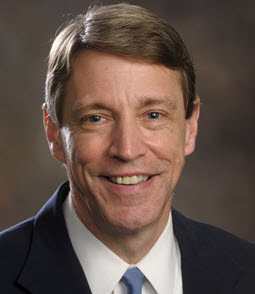Timothy D. Stark, Ph.D., P.E., BC.GE, Dist.M.ASCE, a professor of civil and environmental engineering at the University of Illinois at Urbana-Champaign, has been honored with inclusion by ASCE in its 2024 class of distinguished members for his exemplary career as a researcher and educator, most in notably advancing the basic understanding of the two-dimensional and three-dimensional stability of natural and man-made slopes and the measurement and evaluation of the static and seismic peak, post peak, fully softened, and residual strength of soils.

Stark’s expertise is in geotechnical engineering, and he is eminent in his field. He has been conducting research and teaching in the area of slopes, embankments, and earth structures for over 30 years. One of his current studies is the runout analyses for natural (Oso landslide) and man-made (tailings dams) slopes using various numerical methods, 3D slope stability analyses, fully softened and residual shear strengths.
He was the first to show and recommend design geosynthetic/geosynthetic and soil/geosynthetic interface strengths for geosynthetic-lined slopes, such as landfills. This work resulted in the design procedure presented in Stark and Poppel (1994) for assigning residual, not peak, interface strength along all side slopes and peak on only the base or flat portion of a geosynthetic-lined slope. Also recommended is a second design scenario to assign residual interface strengths to both the base and side slopes and ensure that the resulting static factor of safety exceeds unity.
Another of Stark’s current research areas is related to the use of drilled shafts for bridge foundations. Stark has studied nondestructive tests to identify defects in drilled shafts prior to acceptance and super-structure construction. His findings show that thermal integrity profiling and crosshole sonic logging are suitable for identifying defects outside of the rebar cage and at the bottom of the drilled shaft, respectively.
Extensive numerical modeling was used to simulate concrete heat of hydration during drilled shaft curing to facilitate field thermal measurements. The validated 3D numerical model is being used to facilitate interpretation of thermal data for future bridge projects.
Stark was the recipient of the 2023 J.E. Jennings Award, South African Institution of Civil Engineers; T.H. Wu Lecturer at Ohio State University; James M. Hoover Lecturer at Iowa State University; and R.M. Quigley Award, Canadian Geotechnical Society; among others. ASCE alone has honored him with 2023’s Martin S. Kapp Lecture, the 2022-23 Cross-USA Lecture; 2021’s GZA Lecture, 2019’s George H. Norman Medal (best paper award), 2013’s Thomas A. Middlebrooks Award, 2012’s Editor of the Year (Journal of Geotechnical & Geoenvironmental Engineering), 2011’s Best Scholarly Paper (Journal of Legal Affairs and Dispute Resolution), the Huber, another Middlebrooks, Casagrande, Edmund Friedman Young Engineer, and News Correspondent. He has also received D18 Standards Development Awards in 2022, 2019, 2014, and 2011 and a Technical Editors Award from the ASTM International. Learn more about ASCE here.
 TEXTILES.ORG
TEXTILES.ORG


